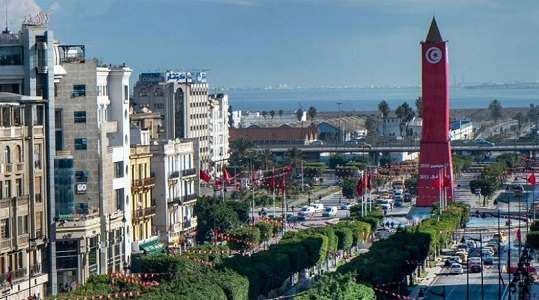Tunisia's annual inflation growth accelerated to 10.4 percent in February, up from 10.2 percent in January, at a three-decade high.
A report issued by the National Institute of Statistics (governmental) showed that the annual inflation rate rose in February to reach the level of 10.4 percent after it was 10.2 percent during the previous month. The rise came amid a crisis of sharp rise in the prices of food, energy, and transport, and fluctuating abundance of basic commodities in the markets. Tunisia is witnessing a severe economic crisis, exacerbated by the repercussions of the outbreak of the Corona pandemic, and the high cost of importing energy and basic materials following the Russian-Ukrainian crisis.
Due to the fluctuating abundance of foreign exchange in Tunisia, local markets have been witnessing for months a decline in the abundance of basic commodities, at a time when President Kais Saied accuses some traders of "monopolizing goods."
The Governor of the Central Bank of Tunisia, Marwan Abbasi, indicated that the World Bank's estimates indicate a rise in inflation in 2023 to 11 percent, up from 8.3 percent in 2022.
Source (Anadolu Agency, Edited)

